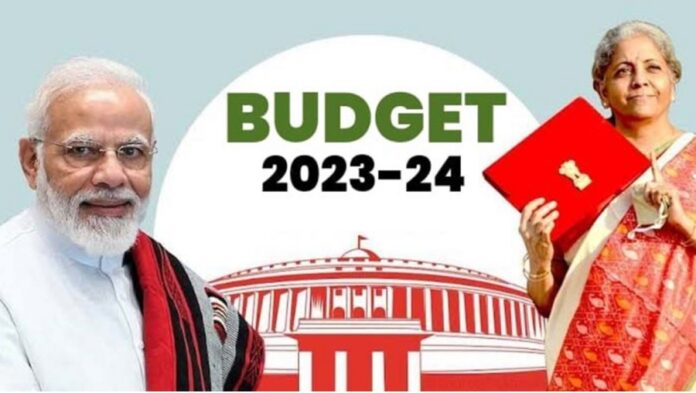The union budget 2023 will mainly focus on recovering the economy which is affected by the covid pandemic. Our finance minister will surely have various ways to put our economy back on track and this budget will be an instrument of the economic development of our country. This year the budget will focus on the revival of growth rate and investing in infrastructure. The Finance Minister may propose several new schemes in order to support the vulnerable section of society and reduce inequality.
Moreover, the finance minister is expected to prioritize the reduction of government debt and introduce measures for creating more jobs. This year, the government is likely to announce more tax reforms and take steps for greater tax compliance. Measures such as a reduction in income tax for the middle class and revamping GST could be in the cards.
Apart from these measures, the government is also likely to allocate higher resources for health, education and the empowerment of women. All these efforts are likely to help our country become self-reliant. We look forward to a budget which boosts our country’s economy.
The Union Budget of 2023 is set to be released on 1st February 2023, exactly the same date when it is normally presented every year. Finance Minister Nirmala Sitaraman will present the budget to Parliament, which is the authority that gives its nod for implementation.
Major sectors and areas of focus for Union Budget 2023:
The focus of the Union Budget 2023 will be on India’s overall economic recovery post-COVID-19 pandemic, with emphasis on sectors such as health, education, and infrastructure. The budget is also likely to prioritize providing employment and healthcare benefits, in addition to rolling out more relief measures. To promote economic revival, the government will likely aim to bring the country closer to becoming a manufacturing hub and investing heavily in research and development. In addition, there may be measures taken to stimulate job growth and make it easier to do business in the country.
What is the budget cycle?
The budget cycle of the Union Budget 2023 consists of four stages- Pre-Budget stage, Budget Stage, Post-Budget stage and Execution stage. The Pre-Budget stage involves analysis and review of the past year’s performance and preparation of plans for the upcoming budget. This is followed by the Budget stage, where the budget is formulated and discussed by the government. After this comes the Post-Budget stage where changes, modifications and modifications in taxation, customs and duties are made based on the approved budget. Finally, the Execution stage consists of monitoring, tracking and managing the expenditures of the budget to ensure the set objectives are achieved.
The Union Budget 2023 will be presented in the month of February 2023 by the finance ministry of India. It will cover a 12-month period starting April 1, 2023 and ending March 31, 2024.
The budget is released by the Union government and sets the government’s financial policy for the upcoming financial year. It outlines the income, expenditure and sources of funding of the government in addition to highlighting areas such as agriculture, health, defence and infrastructure which the government aims to invest in or fund.
You can view the Union Budget 2023 on the government’s website when it is released. Additionally, news organizations and social media outlets will likely provide analysis and breakdowns of the budget on the day of its release.
In Union Budget 2023, it is expected that the Government will focus on reviving the pandemic hit economy, tackling inflation, and investing in sectors such as health, agriculture, education and defence. The focus on reviving the economy is likely to result in more capital expenditure, more income tax cuts and a reduction of corporate tax rates to attract investments and foreign capital. Other areas of focus include financial and banking reforms, industrial reforms, technology investments, and welfare reforms.
The Union Budget 2023 cycle typically involves four steps: Pre-budget discussions, Budget preparation, Budget Speech and discussion and debate on the Budget and post-budget review. Pre-budget discussions involve consultations with stakeholders such as ministries, industry leaders and economists on their budgetary expectations and ideas. During budget preparation, the finance ministry prepares a budget and circulates the same for clearance. After the budget speech, a detailed debate on the budget takes place in the parliament, and subsequently post-budget reviews and analysis are conducted by media and the government to evaluate the budget’s efficacy.
What is the budget cycle? To know all about the union budget 2023 stay with us in this post at last.
The budget cycle is the process by which the federal government collects and spends its money. This involves various stages such as formulation, adoption, execution, and accounting.
Formulation: This is the initial stage, where federal agencies draw up their annual budget requests to submit to Congress. During this stage, agencies submit documents outlining their current financial position, requests for new appropriations, and proposed changes to the federal budget.
Adoption: Once agencies have submitted their budget requests, Congress debates the proposed budgets, evaluates and sets budget allocations, and passes appropriation bills. This typically involves several budget resolutions and appropriations bills over the course of the fiscal year.
Execution: After the budget is adopted by Congress, the agency allocates funds according to the authorized amount, makes changes and additions, and carries out other tasks as required.
Accounting: The agency keeps track of spending during the budget year and reports on it during the subsequent year, providing transparency and accountability in the budget process.
At the end of each budget year, the budget process begins anew as agencies make their budget requests for the following year. This process is commonly known as the “union budget.” The union budget for 2023 is currently being prepared and will be adopted in the next few months.
Union Budget
The budget proposals in Union Budget 2023 will include policies related to direct and indirect taxation, public spending, monetary and fiscal policies and the reform of the public financial system. The Union Budget 2023 may provide specific policy initiatives such as tax reforms, revising fiscal targets and inflation control, introducing targeted interventions for vulnerable and disadvantaged communities and sectors. Other possible policy measures include announcements related to manufacturing and agricultural incentives, subsidy and government expenditure reform, changes in import duties and foreign trade agreements and investment in public infrastructure. The government will also announce specific sectoral initiatives like Education, Health and Tourism and direct or indirect subsidies in strategic sectors like agriculture and transport. Further, reforms in banking and financial sector and Foreign Direct Investment reforms can be expected in this budget. In conclusion, Union Budget 2023 will present various reforms to strengthen the country’s economy and address various socio-economic problems of the country.
Union Budget Pdf
The Union Budget 2021-22 was announced on 1 February 2021 by the Hon’ble Finance Minister Nirmala Sitharaman. You can access the official Union Budget 2021-22 PDF at [LINK]. The Union Budget 2021-22 includes a series of reforms to strengthen India’s financial foundation and ensure greater welfare for the local people. In the Union Budget 2021-22, focus has been placed on supporting economic recovery, with additional measures announced for rural employment, affordable housing, and increased public expenditure on infrastructure and health services. Furthermore, various policy and structural changes have been announced to improve public finances and promote development across India.
Budgets 2023 Highlight
In the Union Budget 2023, emphasis will be placed on reforms to further enable local panchayats to raise their own revenue and ensure they get access to more funds, greater autonomy and responsibilities. Additionally, there will be various tax sops and initiatives to give a boost to the real estate sector such as rationalisation of GST, introduction of lower Goods and Service Tax (GST) rates, and tax deduction and deductions on loan repayment for first-time home buyers. Moreover, more initiatives will be rolled out to boost investment in the rural housing market and urban renewal, such as special infrastructure fund.
Union Budget 2023 India
The government plans to announce a major plan to promote digital payments and support fintech companies. They will be providing an investment boost of Rs 10,000 crores to support digital infrastructure and payments system in the country. The government will be offering tax breaks and financial incentives to both domestic and international investors. They are also looking to introduce measures that would enable small businesses and startups to grow faster. In order to create more jobs, the government will be announcing schemes that focus on skilling and apprenticeships for the youth. They also intend to set up world-class incubation and accelerators in various sectors such as healthcare, finance, agritech and artificial intelligence.
Budget 2023
There were a total of four steps to the formulation of the union budget. The steps are as given.
1. Pre-Budget Discussion: Before the Budget is prepared, the Ministry of Finance holds a meeting with all the stakeholders, such as experts, economists, trade bodies and representatives of the opposition, to take into account their views and perspectives on the future direction of the economy and the budget.
2. Budget Drafting: The draft budget is prepared by the Department of Economic Affairs with the assistance of various other departments of the Ministry of Finance, based on the discussions held in the pre-budget meeting.
3. Cabinet Approval: After the budget is drafted, it is sent to the Cabinet for approval before it can be presented to the Parliament.
4. Parliament Presentation: Finally, the Finance Minister presents the budget to both the houses of the Parliament. The Lok Sabha passes the Appropriation Bill and the Rajya Sabha passes the Finance Bill to authorize the government to draw money from the Consolidated Fund of India to execute its financial plans.
After the enactment of the Union Budget 2023 on 1 February 2023, the third stage of implementation will start from 1 April 2023. The government agencies involved will use the budget allocations to roll out projects and services which they were authorised to implement in the budget. This stage is an essential part of ensuring the objectives of the budget are successfully achieved. Once all the activities and initiatives have been completed the final stage is an audit. This starts from 1 April and is necessary to assess if the funds have been correctly used. The audit also highlights any issues that may need addressing and this helps to ensure that government programmes are being run efficiently and in line with the objectives set out in the Union Budget 2023.
























































